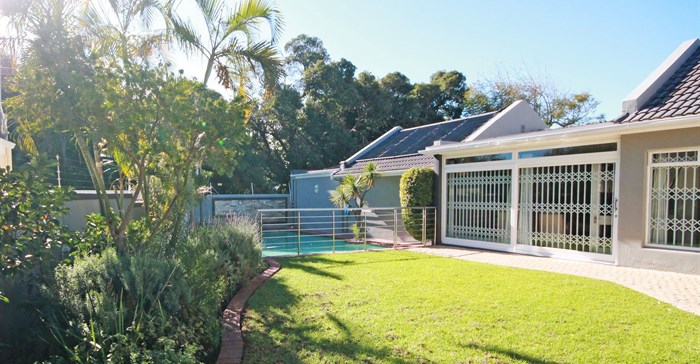
Lorraine-Marie Dellbridge, rentals manager for Lew Geffen Sotheby’s International Realty in the Southern Suburbs, Noordhoek and False Bay says: “Many owners are still firmly holding out for rental prices last achieved in 2015 but, in an already overcrowded market further impacted by the fast-dwindling Airbnb hype, their unrealistic expectations are becoming more and more costly.
“This is especially true of properties priced above R25,000 where the growing number of listings is contrasting sharply against the ever-shrinking tenant pool who are becoming spoilt for choice.
“And, although the entry and middle markets have been encouragingly active with consistent demand for properties under R20,000, it remains a very competitive “buyer’s” market with landlords vying for the attention of well-informed consumers.”
Dellbridge says the importance of realistic and accessible pricing, a clear understanding of current market trends and catering to tenant’s needs was clearly evidenced last month when their office achieved record listings despite a very subdued market.
“In May we concluded more rental deals in one month than we have in the last four years which is largely due to the compelling drawcards of The Sara – a stunning, well-priced apartment block in Diep River that was designed to meet the needs and pockets of the current market.”
Southern suburbs co-principal, Arnold Maritz, cautions that although the healthy appetite for entry to mid-market rental homes in the area is certainly cause for cautious optimism, landlords must not forget that cash-strapped consumers are still under considerable pressure.
“In most instances, tenants are required to fork out a hefty lump sum for a double deposit before they have even taken moving costs into account or factored in additional outlays like new curtains, higher petrol expenditure or even different school uniforms.
“And, in leaner times when belts are already tightened to the last notch, those who are able to scrape together the cash and pass the stringent agency checks are understandably more selective, usually better informed and less inclined to settle for properties that don’t tick the majority of their boxes.”
The exception to the general market trends in the Southern Suburbs is a stretch known as the Academic Belt which remains largely buffered by its proximity to the University of Cape Town and a broadening gap between the demand and supply of suitable student accommodation.
However, Dellbridge cautions that even in this area, a level of shrewdness is required to reap the best rewards and she pinpoints two key factors that will determine short and long-term returns right from the start: "Initially, the trick is to avoid over-capitalising on upgrades and renovations and then it’s crucial to determine a reasonable yet competitive monthly rental.”
She points out that the fact that pricing plays a critical role in even the most resilient of markets further emphasises the importance of correctly positioning a property in the market to secure quality tenants and maximise returns.
“The reality is that landlords who don’t follow the current price trend, especially in the higher price bands, are going to find their investments becoming white elephants as the fact of the matter is that even if your property is empty for one month, you will never recoup that lost income.
“This essentially means that over a year they will yield a considerably smaller return than if the property had been rented out immediately at realistic market-related rental.”
Maritz concludes: “Regardless of market conditions, the goal remains the same - to maximise return on investment by setting the rent at the highest point that will easily attract tenants. However, in tough times the fine line between appealing value and instinctive elimination is easily crossed and the best way for landlords to determine a realistic rental price is through research.
“Landlords, know your market, be flexible and competitive, be reasonable when renewals are due and don’t take good tenants for granted. And if you don’t have the time to manage your property with the hands-on commitment it needs, appoint an agent who not only understands the market but also has the experience and knowledge required to advise you on all aspects, including correct pricing and tackle all arising issues on your behalf.”